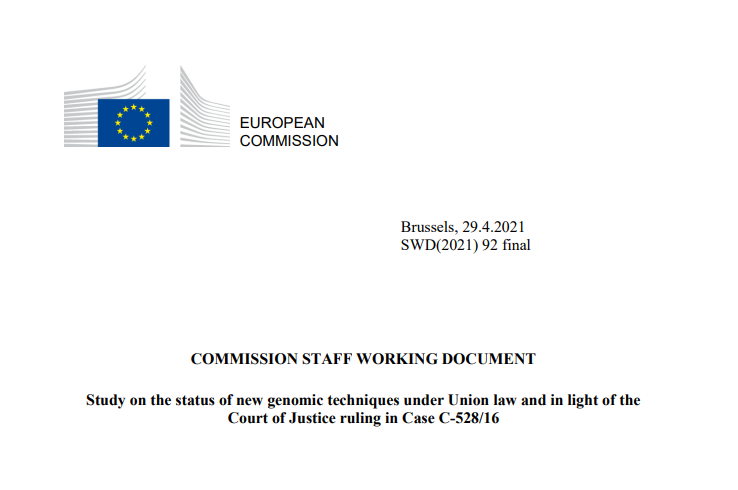Promising steps for New Genomic Techniques in Europe
At the request of the Council, the European Commission published a study on New Genomic Techniques (NGTs). NGTs are techniques capable of altering the genetic material of an organism and that have agri-food, industrial and pharmaceutical applications. These techniques and their products have developed rapidly in the last two decades and are expected to keep on expanding. This study confirmed that there is considerable interest in research on NGTs in the European Union (EU), as it also showed that several of the plant products obtained from NGTs have the potential to contribute to the objectives of the EU’s Green Deal and in particular to the “farm to fork” and biodiversity strategies and the United Nation’s sustainable development goals (SDGs) for a more resilient and sustainable agri-food system.
The ability of the legislation to respond to the rapidly-evolving scientific developments was one of the limitations identified by this study, which can bring implementation challenges and regulatory uncertainty. The current GMO legislation, adopted in 2001, showed strong evidence that it was not fit for the purpose of the NGTs. Adopting rigid risk-assessment guidance in legislation limits case-by-case assessment, which is a necessity in what concerns NGTs, as these are a diverse group of techniques, each of which can be used in various ways to achieve different results and products.
The follow-up to this study should confirm whether regulatory adaptation is needed, and, if so, what form should it take, while also considering possible policy instruments to turn the legislation more resilient, future-proof and uniformly applied.
For the current study, information and views on the status and use of NGTs in plants, animals and micro-organisms for agri-food, industrial and pharmaceutical applications were gathered from Member States and EU-level stakeholders through a targeted consultation, including European Sustainable Agriculture Through Genome Editing (EU-SAGE), for which GREEN-IT members regularly contribute through dissemination, letters to the government and by gathering national support.
For further information, check:
Letter to the Portuguese presidency



